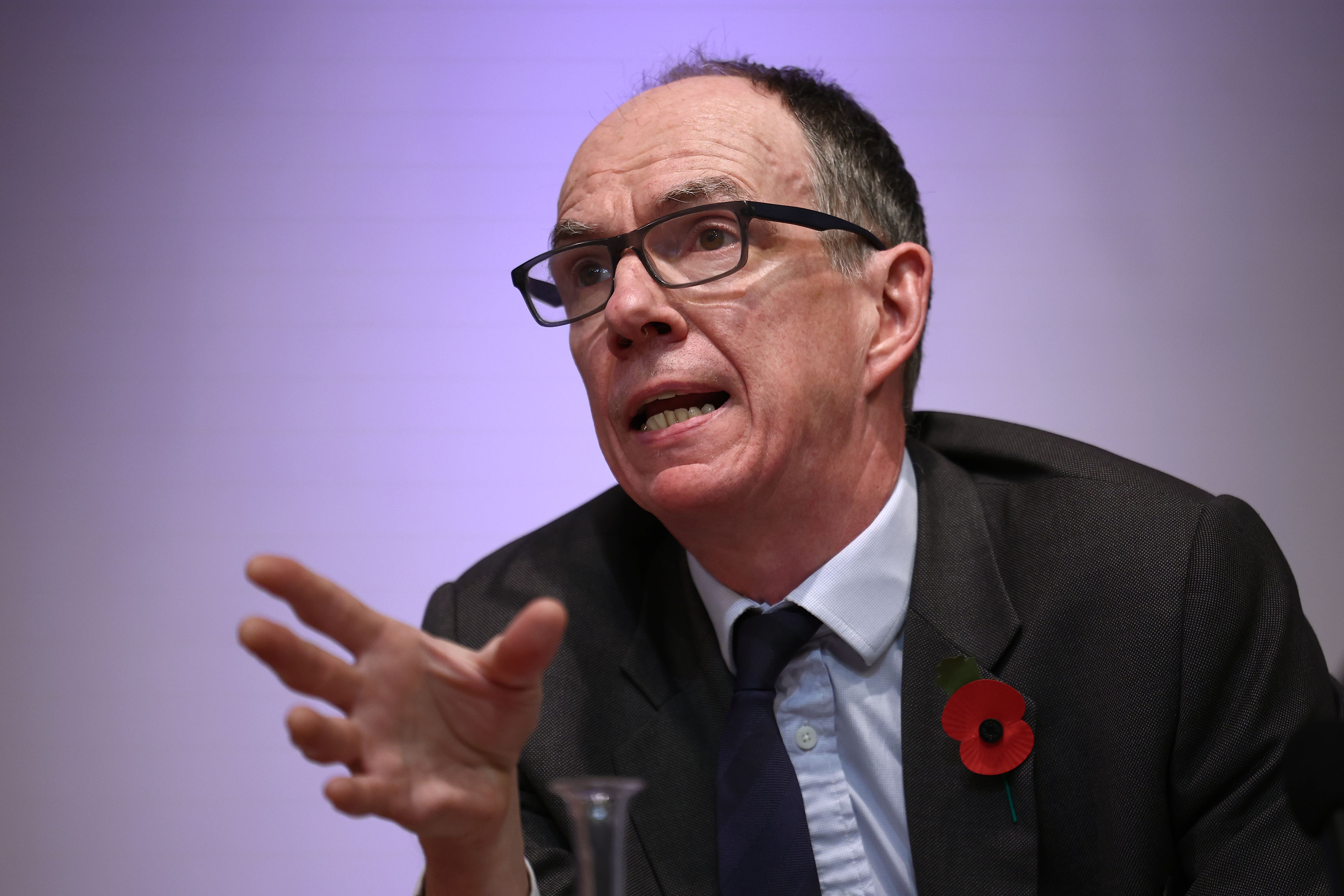Labour Budget adds to uncertainty over inflation, says Bank policymaker
Dave Ramsden, deputy governor for markets and banking, was speaking after the Bank cut rates by a quarter point earlier in November.

A senior Bank of England policymaker has said Labour’s Budget tax rises have made it harder to forecast inflation, and contributed to the current “gradual” approach to interest rate cuts.
Dave Ramsden, the Bank’s deputy governor for markets and banking, said measures in the autumn Budget were among the factors introducing “uncertainty to the outlook for the labour market and wider economy”.
Policymakers’ gradual approach to rate cuts “is based on a recognition” of economic uncertainties, he said.
“Were those uncertainties to diminish and the evidence to point more clearly to further disinflationary pressures… then I would consider a less gradual approach to reducing bank rate to be warranted.”
It is not clear the extent to which the tax increase will be transmitted into an increase in prices, reduction in wages, increase in unemployment or otherwise absorbed into profit margins or productivity growth
Mr Ramsden was speaking at the University of Leeds on Wednesday, after the Bank cut rates by a quarter point to 4.75% earlier in November.
Earlier in the day, new data showed that inflation rebounded from the three-year-low it recorded in September to surpass the 2% target rate set by the Bank.
Speaking on Wednesday, Mr Ramsden said it is “not yet clear” how Labour’s policy of increasing employer national insurance contributions (NICs) or raising the minimum wage would affect prices.
He said: “The increase in employer NICs represents an increase in labour costs, initially fully borne by the employer.
“It is not clear the extent to which the tax increase will be transmitted into an increase in prices, reduction in wages, increase in unemployment or otherwise absorbed into profit margins or productivity growth.”
Earlier in November, a number of listed British companies warned of rising costs to consumers in the wake of Labour’s Budget.
The bosses of Marks & Spencer, pub group Wetherspoon and Primark owner Associated British Foods pointed to potential increases in costs.
Meanwhile, public spending watchdog the Office for Budget Responsibility forecast in October that inflation would be higher than expected for the next four years, after the Budget.
Bookmark popover
Removed from bookmarks